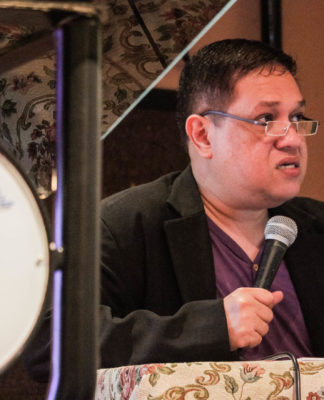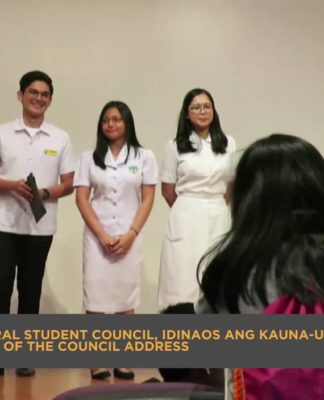DO CATHOLIC schools produce corrupt politicians?
Despite a good number of national and local leaders educated in Catholic schools, the country still topped the list of most corrupt countries in Asia according to the Hong Kong-based Political and Economic Risk Consultancy (PERC) survey last month.
Whether Catholic schools are part of the blame and what these institutions should do were the talking points of the speakers of the Theology Week 2007, a five-day lecture series last April 16 to 20 at the UST Martyrs’ Hall.
With the theme “Catholic Education and Professional Ethics in the Philippines: Challenges and Perspectives,” the event dwelled on the Second Plenary Council of the Philippines’ statement that “many graduates of Catholic schools have contributed to the dismal economic and political imbalances existing in the country.” The theme was also a post-reflection activity on last year’s declaration of the Catholic Bishops’ Conference of the Philippines, titled “Renewing Our Public Life through Moral Values.”
For UST Rector Fr. Ernesto Arceo, O.P., Catholic schools should exert more efforts in developing moral values after the country garnered a 9.4 rating from a score range of 0 to 10 (10 being the worst) in the PERC survey despite the presence of 1,194 Catholic educational institutions.
“In our society, it is the Catholic schools that suppose to provide an ideal environment where citizens imbibe moral values while learning in and out of the classrooms (through curricular and co-curricular activities and campus advocacies),” Arceo said, while stressing that the country could have been in a far worse situation without Catholic schools to integrate moral values into the educational system, in his lecture “Models of Engagement in Catholic Moral Education.”
The Rector admitted that although Catholic schools exert their best to produce morally upright students, some of the graduates might still be practicing corruption in the political and economic spheres.
“Products of Catholic schools may be practicing corruption in their profession but this should not necessarily mean the failure of the institutions to cultivate ethical values on their graduates. The whole Catholic education system must refuse to absorb all the blame,” Arceo said, pointing to other factors that affect moral development such as the socio-cultural environment and the media.
Faculty of Arts and Letters regent Fr. Rodel Aligan, O.P. also acknowledged the loss of Catholic values among some graduates of Catholic institutions.
Aligan said that the world may impose “secondary values” on Catholic graduates that may devalue the lessons they learned in school. Unless the graduates stay firm, they may loose their Catholic values.
Media’s role
Meanwhile, acclaimed film director Laurice Guillen referred to the role of media in the moral consciousness of Filipinos.
In her lecture, “The Christian Heart and the Morality of Cinema,” Guillen lamented the failure of screenwriters to portray holistic characters in films or television shows. As a result, she said that the meaning of intended good messages gets lost.
Guillen said that motion pictures should be a medium of transmitting moral values. However, she added that the messages of a Christian communicator become diluted as the industry adapts to social trends in the country. She related her experience in her film Tanging Yaman, where she went through discouraging remarks for making a morality-based movie amid the rampage of sexy flicks.
Just like film, the print media is a vital tool in shaping the country’s present and future policy makers, said Joselito Zulueta, editorialist of the Philippine Daily Inquirer, in his lecture “Media Ethics and Public Accountability: Truth in Christian Perspective.”
Zulueta said that printed materials provide more time for readers to reflect.
“Television programs are inadequate substitutes for good newspapers (as source of information and guide on moral character formation),” he said, stressing that content in print is given priority than presentation.
In all, the Theology Week 2007 stressed that education in and out of the school is the key to stop corruption. Speakers proposed morality-based advocacies in society, integration of values in every subject, and the support of the media in ethical evangelization. Levine Andro H. Lao
















